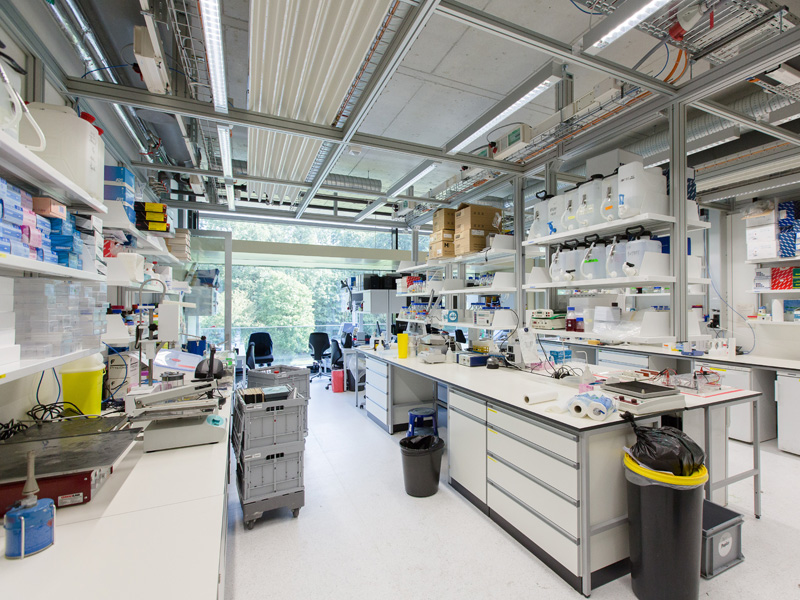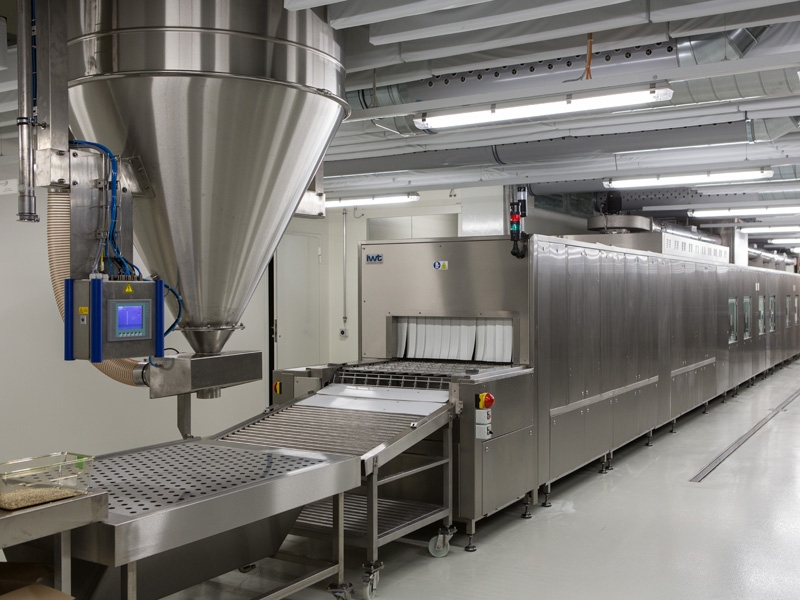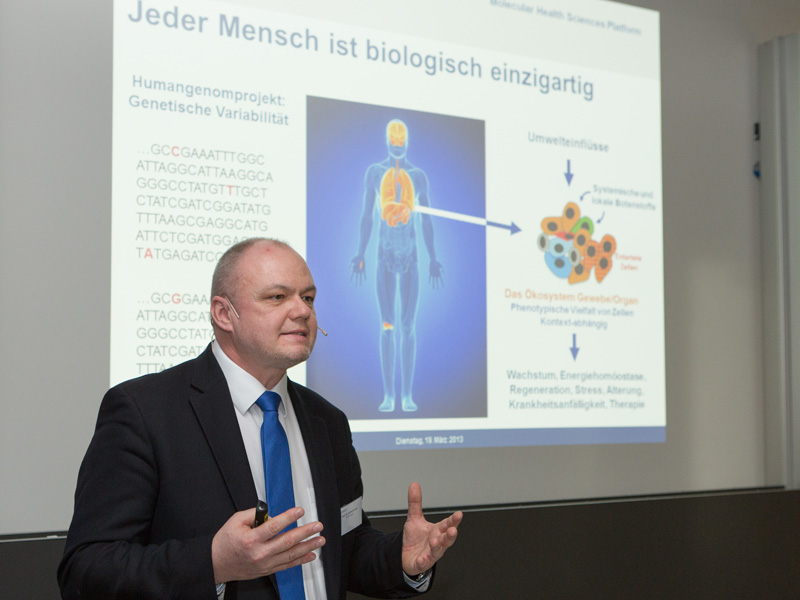New centre for biomedicine
Molecular health sciences combine biology, medicine and technology in order to explore the basic principles of health and disease. This scientific discipline now has its own education and research centre in the form of the new “Molecular Health Sciences Platform”, which was officially inaugurated yesterday on the Hönggerberg campus.

The new building on ETH Zurich’s Hönggerberg campus represents another milestone in the field of life sciences and individualised medicine: after a construction period spanning four years, yesterday saw the opening of the “Molecular Health Sciences Platform”, the new education and research centre dedicated to molecular health sciences. “With this platform, ETH Zurich is reinforcing its claim of making a sustainable contribution towards the further development of health sciences and technology – and not just at national level, but on an international scale too,” emphasised Ralph Eichler, President of ETH Zurich, in his welcoming speech.
Around a dozen research groups from the Department of Biology and the Department of Health Sciences and Technology have been working in the new building since September 2012. The researchers all share a common goal: to investigate molecular processes which play a key role in, for example, the development of tumours, diabetes, brain disease or inflammatory diseases. They are trying to find out how higher organisms with complex organs react to disease, stress and environmental influences. These findings will form the basis for research into new methods of diagnosis and forms of medication.
Technology platforms provide a springboard for progress
The field of research covered by molecular health sciences incorporates biology, medicine and technology, and every step forward in advancing knowledge in this area is closely linked with technological and methodological innovations. With its state-of-the-art technology platforms, the “Molecular Health Sciences Platform” offers the networking facilities and infrastructure needed to drive forward expertise in the basic scientific principles of individualised medicine with innovative and experimental approaches to research. “Since researchers from various specialist areas are using the technology platforms together and thinking beyond disciplinary boundaries, ETH Zurich can play an instrumental role in the future of biomedicine,” said Wilhelm Krek, Professor of Cell Biology, at the opening ceremony. Examples of the modern technology platforms used include platforms for imaging processes or high-throughput technologies, which make it possible to highlight cells on a large scale with laser light and fluorescent substances and then analyse them.
“ETH Phenomics Center” forms the centrepiece
In addition
to computer simulations and experiments on cells and tissue, molecular health
sciences rely on research involving tests on mice to gain advances in knowledge.
The “ETH Phenomics Center” therefore forms the centrepiece of the “Molecular
Health Sciences Platform” and, being incorporated into the building itself, it consolidates
ETH Zurich’s laboratory animal facilities in a central location. The “ETH
Phenomics Center” complies with the latest international standards in
species-appropriate breeding, welfare and treatment of mice used for
experimental research. Handling laboratory animals in a competent, respectful
and responsible way is an integral part of the biomedical research and
education carried out at ETH Zurich. The centralised laboratory animal facility
also offers access to laboratory areas equipped with modern methods of
analysis, which all research groups can use for characterising the in vivo models. Unlike the laboratories,
the “ETH Phenomics Center” is not yet operational, but the final finishing
touches are underway according to schedule.
Interaction makes the difference
The “Molecular Health Sciences Platform” is a real hub for interdisciplinary research: the technology platforms are available for use by all ETH Zurich researchers from various specialist areas, and the entire building is designed to facilitate interaction with researchers from the University of Zurich, the University Hospital and industry too – as part of the new Hochschulmedizin Zürich (“Zurich university medicine”) initiative, for example. In addition to the laboratories and office spaces, spacious meeting areas and recreational zones have been provided for this purpose.
Education and the promotion of innovation are also key elements of the “Molecular Health Sciences Platform”. The professors are heavily involved in the “Biology” and “Health Sciences and Technology” (HST) Bachelor’s degree programmes, which will also feature a specialisation in “Molecular Health Sciences” from 2014 onwards. The building also accommodates one of the three ETH Innovation and Entrepreneurship Labs (ieLab), which help upcoming young researchers and entrepreneurs in particular to develop their ideas with a focus on practical application and to establish contacts with the business world.












READER COMMENTS